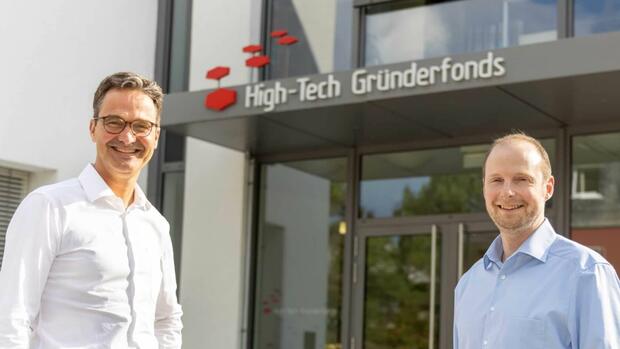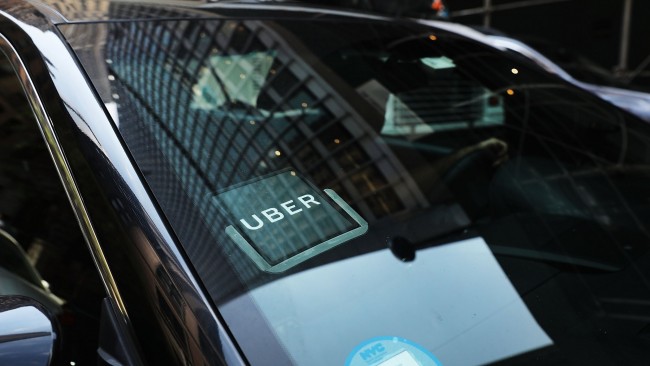Dark clouds are also gathering over the German start-up scene. The Ukrainian war, supply chain problems and stock market setbacks are having an impact. In the midst of the difficult situation, the semi-state-owned high-Tech Gründerfonds (HTGF) from Bonn reports signals of hope.
With his fourth fund, he therefore achieves a committed volume of 420 million euros in the “first closing”. More than 130 million of these come from 40 private investors, who participate in addition to the Federal Ministry for Economic Affairs and Climate Protection and the state-owned KfW Capital.
“In the face of an impending economic crisis, it is a positive sign that we have been able to raise more money than ever from more investors than ever before. The start-ups need such encouragement,” says Managing Director Alex von Frankenberg: “Other investors may be reluctant at the moment, with us they became active despite the difficult environment.” Our own expectations have been exceeded, the manager makes it clear that the “Second Closing” will take place later this year.
Medium-sized companies in particular are strongly represented in the fourth fund, this time there are also four family offices, which would prefer to remain unnamed, as well as some large companies, for example SAP, Altana, Qiagen or Deutsche Bank. The aim of the new fund is to support young companies from the digital markets, engineering sciences, pharmaceuticals and chemistry in early financing.
But even at HTGF, in two cases, commitments made were not kept at the last minute and withdrawn – a problem that is well known in the industry. Donors, with whom one had expected firmly, then suddenly disappeared.
No new dotcom bubble
However, the Bonn society is not afraid of greater dangers at the moment. The uncertainties in the market have not yet arrived at the bottom line for our investors and start-ups,” explains Co-Managing Director Guido Schlitzer: “We currently do not see the danger of a crash like after the bursting of the dotcom bubble. The venture capital market in Germany is at a different level than it was 20 years ago.“
In fact, some observers fear that the boom of start-ups could collapse like the “New Economy” of the year 2000. At that time, the bursting of the “dotcom” bubble led to years of stagnation in the start-up market and to temporary skepticism about the Internet in Germany. There have recently been “a few exaggerations” in the company valuations, admits Frankenberg: “In this respect, it is healthy that a more realistic view is now taking hold.“
More about start-ups:
Last year, all records were broken in the German start-up scene. Investors had invested 17.4 billion euros in hopeful companies, an incredible increase of 229 percent. The consequences of the pandemic had triggered this boom. This is now over, the values fall back to an earlier level. So far this year, investors have invested only six billion in German start-ups.
With the turnaround in interest rates initiated in the USA and Europe, tech stocks in particular have slumped. Even start-ups, which are almost showered with capital during the monetary glut of the central banks, are now viewed more critically. In Silicon Valley, companies are sometimes said to have erupted in outright panic. At HTGF, too, it seems that the buyer of a start-up has significantly reduced the purchase price by another 25 percent shortly before the conclusion of the contract, can be heard in the environment of the fund company. The deal nevertheless came about.
Those who burn money, the end threatens
A recent report by the financing company Sequoia Capital is also causing excitement in Germany, the creators of HTGF confirm. The Silicon Valley venture capitalists, who provided tech companies such as Apple or Airbnb with capital, saw a “moment of truth” approaching the start-up scene in a presentation at the end of May. Those who continue to have high “cash burn rates” and burn the investors’ money are threatened with the “death trap”.
It is now important to look at future profitability and limit spending. In fact, previously hyped young German companies such as the delivery companies Gorillas and Gopuff, the Kontist tax service, the blockchain banking service Nuri, the online mortgage provider Better or the Swedish payment service provider Klarna have started to part with employees on a large scale.
“We tell our start-ups to pay more attention to costs – and to the cash burn rate,” explains Frankenberg: “Founders currently have to both continue to step on the gas and step on the brakes slightly. And the start-up promoter also says that innovations are still “the best remedy for stagnation”: “SAP and Microsoft were founded after the oil crisis in 1973/74, Facebook was created soon after the crash of the New Economy. Even now, despite all the adversities, there are good reasons for optimism.” We will continue to finance start-ups as a “stable anchor in the market” in a countercyclical way, even in an intensifying crisis.
The High-Tech-Gründerfonds was founded in 2005 and sees itself as “Europe’s most active seed investor”, which has already financed 670 high-tech start-ups. In the first round of financing, young companies can receive up to one million euros. More than 150 companies have been successfully sold, including a billion-dollar exit and four IPOs.
One of the most well-known deals is the sale of the online mattress sellers of the Bettzeit Group (“Emma”) to the Haniel family, which is also now one of the financiers of the fourth HTGF fund. In the third fund of the Bonn-based company, 33 medium-sized companies and industrial groups are invested, close to the “Second Closing” 319.5 million euros came together, almost 25 percent less than in the new round of fundraising. A total of around 1.3 billion euros in fund volume have now been collected with the fourth fund.
We see ourselves as a platform that brings together young companies, industry and capital. The goal: to expand a network of innovation drivers and to promote technology-driven companies.









